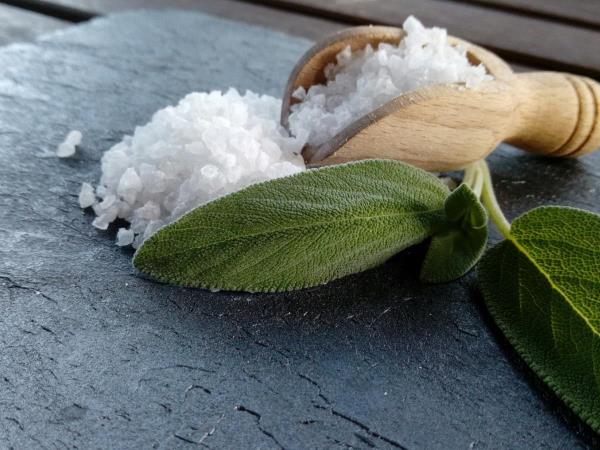How much salt is too much?
Recommendations regarding salt intake vary depending on the individual's health condition:
- Healthy adults should not consume more than 2,300 mg of sodium per day, which equals approximately one teaspoon of salt.
- Individuals with high blood pressure, diabetes, or kidney disease should limit their intake to 1,500 mg of sodium daily.
- Despite these recommendations, the average American consumes around 3,400 mg of sodium daily, which is significantly above the recommended limit.
1. Constant thirst
If you often wake up with a dry throat or feel like you are never adequately hydrated, this could be a sign of excessive salt intake. When you consume too much salt, the body needs more fluids to maintain balance. This leads to an increased feeling of thirst as the body tries to dilute the excess sodium in the blood.
2. Feeling bloated
Excessive salt intake causes water retention in the body, which can manifest as bloating or swelling, especially in the abdominal area. Sodium binds water, leading to a sensation of tension and discomfort.
3. High blood pressure
One of the most serious effects of excessive salt intake is high blood pressure. When you consume too much salt, the body retains more water, increasing blood volume and thus pressure on the artery walls. Long-term high blood pressure increases the risk of heart disease and stroke.
4. Poor bone quality
Excessive salt intake can affect bone health. High sodium intake increases calcium excretion in urine, which can eventually lead to decreased bone density and increase the risk of osteoporosis. This is particularly important for older adults and postmenopausal women, who are already more susceptible to bone loss.
How to reduce salt intake?
- Pay attention to hidden sources of salt
A large portion of the salt we consume does not come from the salt shaker but from processed foods, such as canned soups, snacks, cheeses, and meat products. Check labels on packaging and opt for products with lower sodium content.
- Cook at home
Cooking meals at home allows you to control the amount of salt in your food. Use herbs and spices to enhance flavor without adding salt.
- Drink enough water
Sufficient water intake helps the body eliminate excess sodium and reduces the feeling of bloating.
Salt is important for our health, but it is crucial to consume it in moderate amounts. Excessive salt intake can lead to serious health problems, such as high blood pressure, bone issues, and water retention in the body. With a thoughtful approach to diet and awareness of hidden salt sources, you can maintain your health and well-being.









 Would you like to be informed about news on the website?
Would you like to be informed about news on the website?

